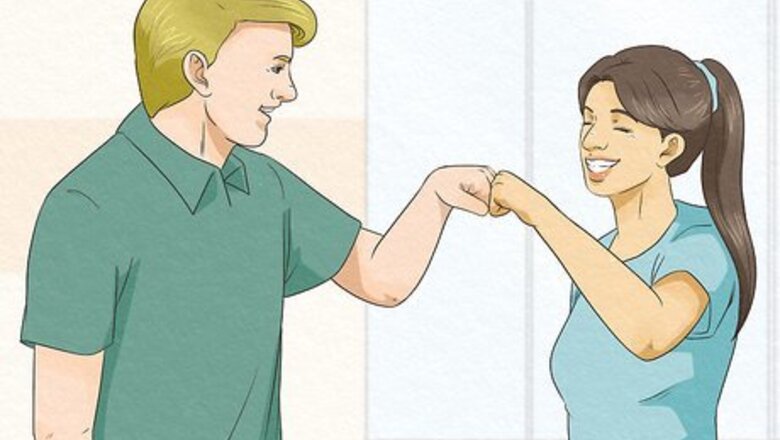
views
- Set appropriate boundaries to avoid developing feelings for your friend. For example, limit how often you hang out together.
- Spend time with your friend in a group setting instead of hanging out by yourselves. This eliminates temptation and reduces romantic tension.
- Stay busy to distract yourself from any romantic feelings. Try exploring new hobbies, meeting new people, or spending time with other friends.
Being Around Your Friend
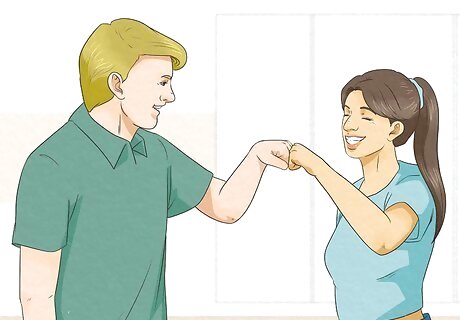
Define your friendship. Worrying about falling in love with your friend could cloud your thoughts and feelings about your friendship. If you're feeling attracted to your friend, it may be worth remembering how you became friends and why you value that person's friendship. Then think about everything you would potentially give up if you acted on any romantic urges you have. Lingering romantic feelings have the potential to complicate or even ruin strong friendships. As friends, you should be able to talk about dating other people without feeling jealous or desirous. If you can't do this, you may need to spend some time apart.
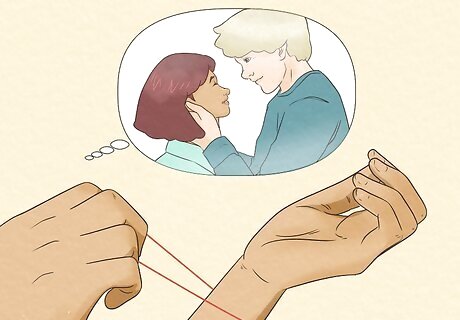
Overcome attraction. While you may fear falling in love with your friend, it's much more likely that what you actually experience is attraction or desire. This is a good thing, though, as attraction tends to fade fairly quickly if the feelings are not acted upon. Examine whether you have a history of seeking out unavailable partners. This may give you some insight into your dating patterns and help you learn to break out of those patterns. Change requires action on your part. You will need to actively change the way you think about your friend to stop seeing them as a potential romantic partner. Try to catch yourself whenever you have romantic or sexual thoughts about your friend. Wear a rubber band around your wrist and snap the band against your skin to stop unwanted thoughts as soon as they arise. It may help reduce your attraction to your friend if you think of them as more of a sibling or close family member. Thinking about the person in this way may reduce your feelings of attraction over time.
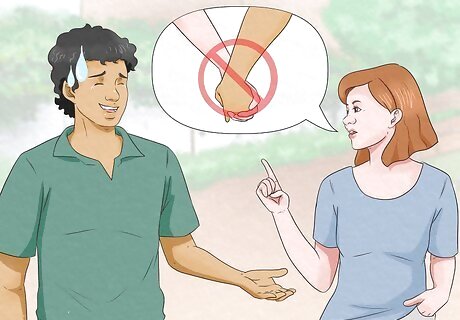
Set appropriate boundaries. A lack of personal boundaries can quickly make a crush on your friend get intense or even uncomfortable. Remember that your friendship is valuable to you and that engaging in a romantic or sexual relationship with your friend could ruin things. Remain friends, but restrain yourself from doing boyfriend/girlfriend things. For example, avoid holding hands, snuggling intimately, or kissing. Consider limiting your interactions or outings. Try limiting yourself to hanging out once a week.

Spend time in groups. If seeing your friend one-on-one is not a good idea, you may need to spend time together with a group of friends. Being around other people can create more of a social setting while removing some of the temptation and romantic tension that might exist if you and your friend were alone. Make up excuses if your friend wants to get together one-on-one, or stick to spending time alone together in public places. For example, get coffee or go to the park instead of spending time at one another's homes. It's up to you to decide whether you will tell your other friends about your feelings. If there's any chance your other friends would reveal your feelings or make fun of you, you may want to avoid telling them.
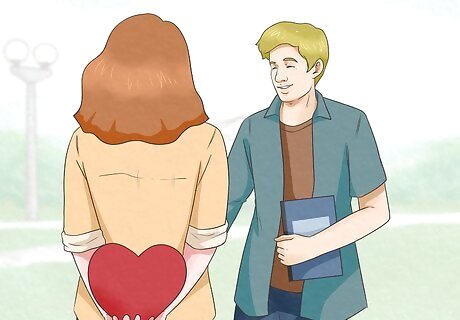
Try keeping your feelings to yourself. Revealing your feelings to a friend who doesn't reciprocate could make that friend feel uncomfortable, confused, or even frustrated. Even if you think you could talk to your friend about anything, talking about having romantic feelings for that friend could permanently change the dynamic of your friendship. See if setting some boundaries and spending less time with your friend causes your feelings to start to subside. Your feelings may resolve on your own and you won't need to bring it up with your friend. If your friend is already in a relationship (or you are in a relationship) or has already expressed that they are not interested in you romantically, then you should not reveal your feelings and instead work on moving on to someone else. It may, however, become necessary for you to have an honest discussion with your friend about how you feel. If the feelings won't go away, or your friend has told you they are hurt and confused because you are pulling away, it might be a good idea to tell them what's going on.
Getting Over Your Feelings
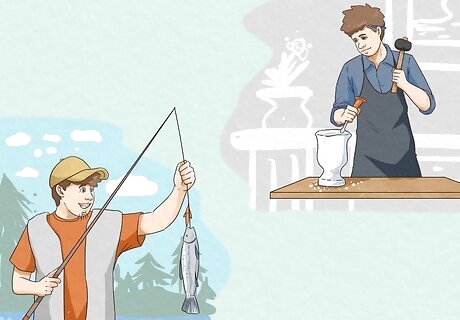
Keep busy. Finding distractions will help you get over the feelings you had for your friend. This may include doing things you already enjoy doing, or it may entail going out and trying new things or meeting new people. Make plans with friends or family at least a few times each week. Keep interacting with others to take your mind off of your feelings for your friend. You can still stay busy if your friends/family aren't available. Go for long walks or bike rides, explore your city, pick up a hobby, or take a class to learn something new.
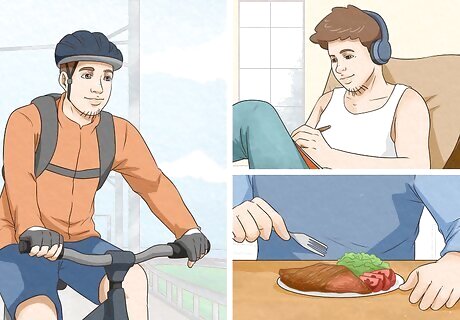
Make self-care a priority. Getting over romantic feelings for a friend is very similar to going through a breakup. You may feel sad, angry, and a range of other emotions, and those emotions may take away your motivation to get through the day; however, maintaining normalcy in your life and taking care of yourself are required more than ever at times like this. Get a lot of exercise. You'll burn off some of your frustration and experience the endorphin release that accompanies physical activity. Try to get an average of 30 minutes of physical activity each day. Most experts recommend getting a total of 150 minutes each week of moderate aerobic activity or 75 minutes of intense aerobic activity each week. Do things that you enjoy, like going shopping or seeing friends. These distractions can make you feel good and take your mind off of your friend. Make sure you maintain a nutritious diet and keep up your daily bathing and grooming habits. Some people recovering from heartbreak neglect these daily routines, but ultimately such behavior makes it harder to bounce back and feel better.
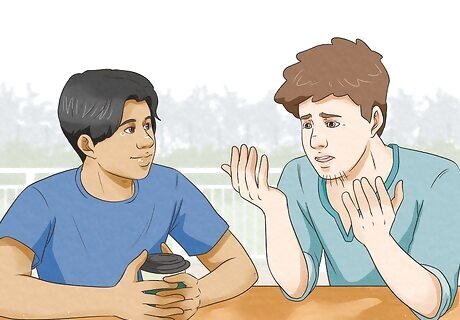
Talk about your feelings. If you've had to distance yourself from a friend you developed feelings for, you may be experiencing a lot of difficult emotions. Keeping those thoughts and feelings bottled up will only cause you to continue dwelling on them. Instead, talk them out with friends whom you can trust or with a qualified therapist. If talking with friends about your experience, make sure you choose friends you can trust. The last thing you want is to be made fun of or for your crush to find out about your feelings. If you decide to work with a therapist, ask your primary care physician for a recommendation in your area. A therapist has the added advantage of helping you beyond this immediate problem. You'll be able to discover patterns of behavior and find ways to work through other problems in your life.
Talking to Your Friend
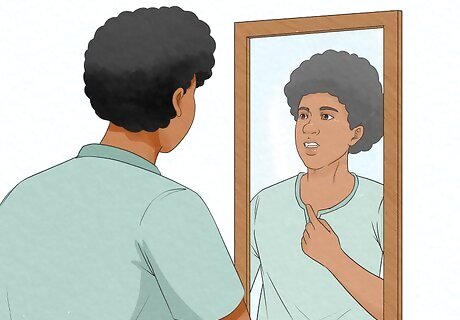
Build up your courage to talk to your friend. You may be afraid of telling your friend how you feel — it can be scary to make yourself vulnerable to rejection, and you risk changing or ending your relationship. If you choose to talk to your friend, you may need to build up your courage before having that conversation. Being brave means facing your fears and do something that is uncomfortable. Remember that change and growth requires you to push yourself and do something challenging. Practice what you'll say to your friend so that you become more comfortable expressing yourself. Do things that build your confidence. This may mean saying affirmations out loud, doing an activity you know you're good at, or reminding yourself of your accomplishments. Remind yourself that if your friend is not interested, it doesn't mean anything is wrong with you. Romantic feelings can't be forced, and sometimes people just don't feel it. In the majority of cases it has more to do with the other person than with you.
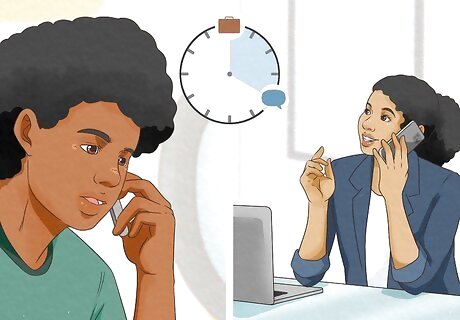
Choose the right time. Ask your friend if they can meet you at a time when you are both free to talk at length. Meet somewhere you can speak in private and where you feel comfortable. Doing this in front of other people or making a big gesture might put even more pressure on your friend or make them panic.
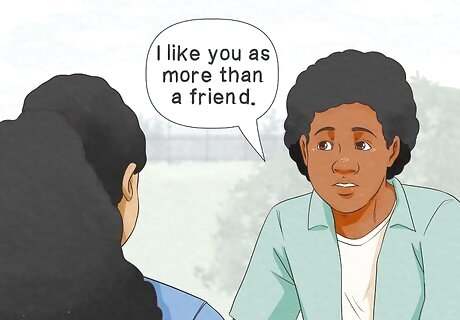
Be honest and assertive. If you have tried to avoid falling in love with your friend but it happened anyway, you may need to express those feelings. If you've thought through the risks of telling them and feel it's worth the risk, you may want to tell your friend. It's not healthy to bottle up your feelings, and if it's torturing you or causing issues with your friendship, it's probably your best option to tell them how you are feeling. It's not necessary to make a huge declaration — just be honest, clear, and not too over the top (it may be a shock to your friend to find out about your feelings, so keep it low-key if possible). Try saying something like, "My feelings toward you have changed, and I like you as more than a friend. I would like to try having a romantic relationship with you. How does that make you feel?"
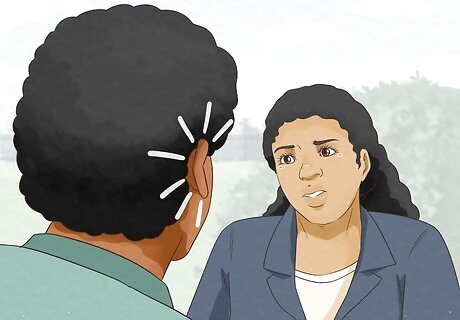
Listen to your friend. Once you have expressed yourself, it's time to let your friend respond. Try to put aside your fears about being rejected or plan what you'll say when your friend stops talking and truly listen. Make eye contact, ask questions if you need to, and try repeating back what is said to confirm you understand. Respect whatever your friend says they feel. They may feel surprised, confused, angry, or any number of emotions. If your friend says they are not interested in a romantic relationship with you, don't try to talk them into it or argue. If they say they are confused and need some time to think, tell them you can give them space and that you will be available to talk more when they are ready.
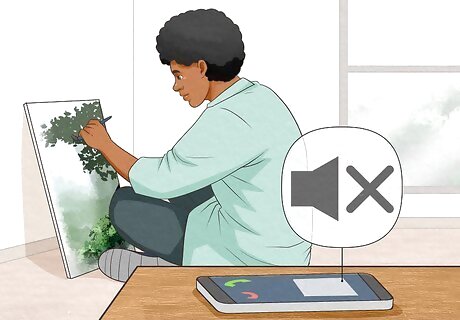
Give one another space. If you have feelings for your friend, you'll need time to sort through those feelings and figure out what your friendship means to you. Your friend may need time and space to figure things out as well, or simply to reduce any lingering tension between the two of you. While giving your friend space, it's best to limit the time you spend together, including time spent on the phone, texting, or chatting online. Try to put your friend out of your mind as much as possible. You can do this by distracting yourself with hobbies or work, or by spending more time with a different friend. EXPERT TIP Joshua Pompey Joshua Pompey Relationship Expert Joshua Pompey is a Relationship Expert with over 10 years of helping people navigate the online dating world. Joshua has run his own relationship consulting business since 2009 at a success rate of over 99%. His work has been featured in CNBC, Good Morning America, Wired, and Refinery29 and he has been referred to as the best online dater in the world. Joshua Pompey Joshua Pompey Relationship Expert Our Expert Agrees: If you're falling in love with your friend and it's clear they don't feel the same way, you might have to do the hard thing and break up the friendship until those feelings dissipate. Give yourself time to come to terms with the fact that they're not interested in you.
Avoiding Your Friend
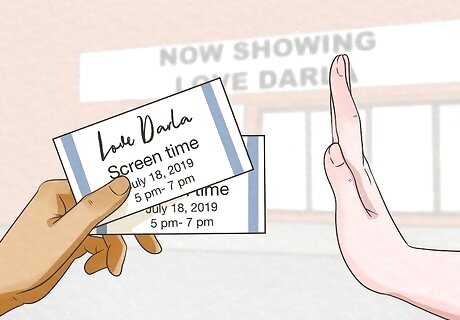
Avoid tempting scenarios. While you may not need to avoid your friend altogether, you should certainly avoid romantic scenarios together. Putting yourself into a situation in which you might develop even stronger feelings or be tempted to act on those feelings will only lead to frustration and may adversely affect your friendship. Resist the urge to enter date-like scenarios, such as going to the movies as a couple or dining at a romantic restaurant. If you're above the legal drinking age, it may be best to avoid drinking with or around your friend. People often have lowered inhibitions when they're intoxicated, and you could end up making bad decisions.
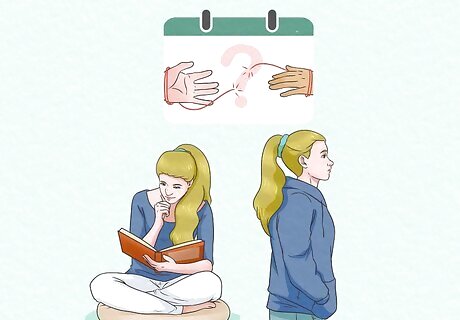
Decide when it's safe to return to normal. If you and your friend need some distance, you may want to decide in advance what that time frame might look like. You'll most likely want to return to having a normal friendship at some point, though this may take longer for some people than for others. Setting a rough time frame can help you track any changes (or lack thereof) in your feelings and determine when it's safe to spend time alone together again. The time period you need apart is entirely subjective. Some people may need a few weeks, while others may need months or years.
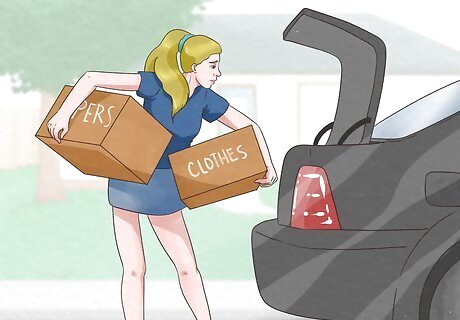
Consider moving away. It's an extreme reaction, but for some people moving away is the best option. If you don't think your feelings for your friend will ever diminish and you're worried about how it may affect your relationship, you may want to consider a geographical change to fix the situation. You don't have to move far. Even moving to the other side of town or the next town over could make it sufficiently less-convenient to see one another. Remember that moving away is a drastic change. A decision like this should not be made lightly over a low-key crush.














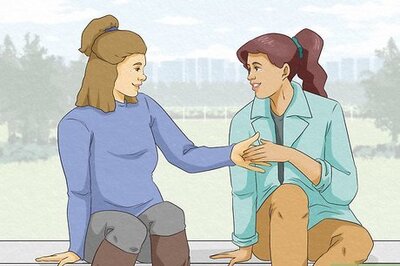





Comments
0 comment